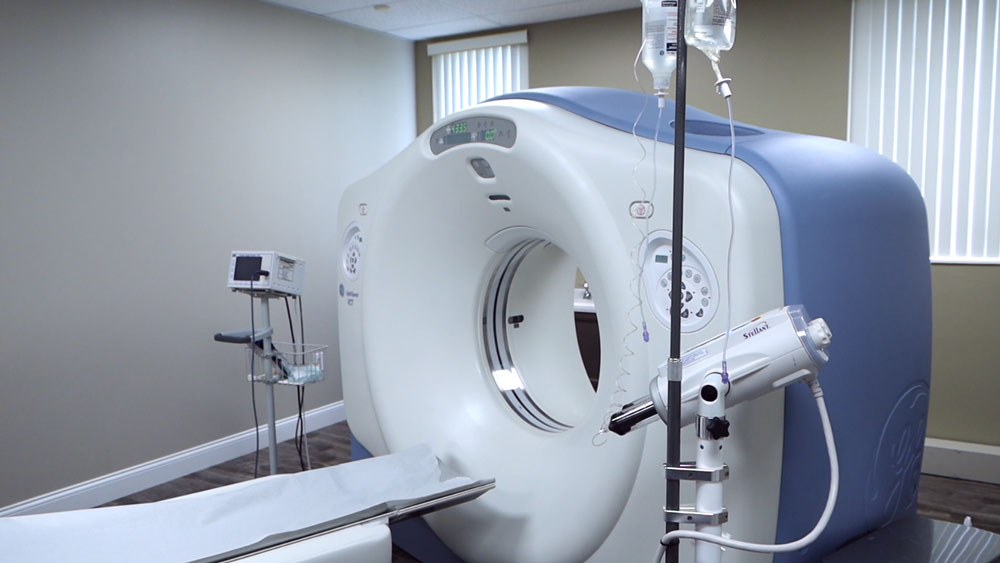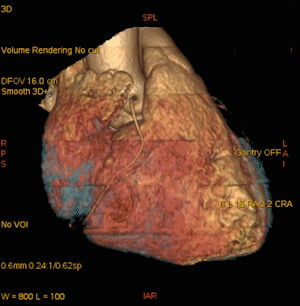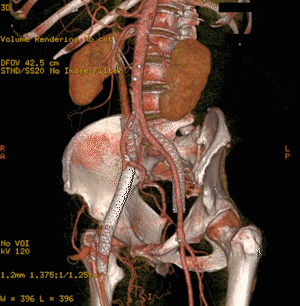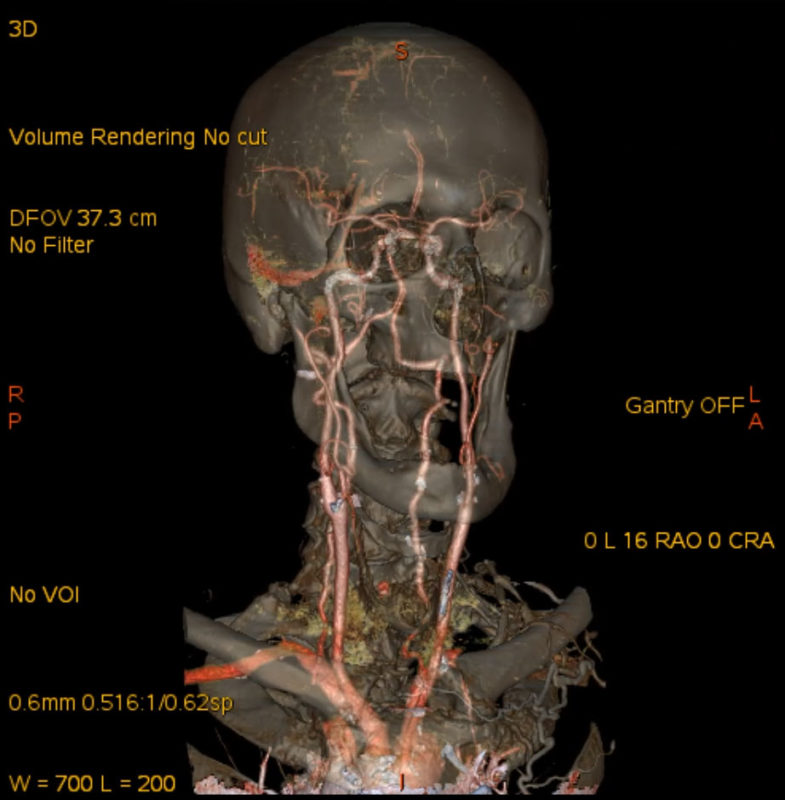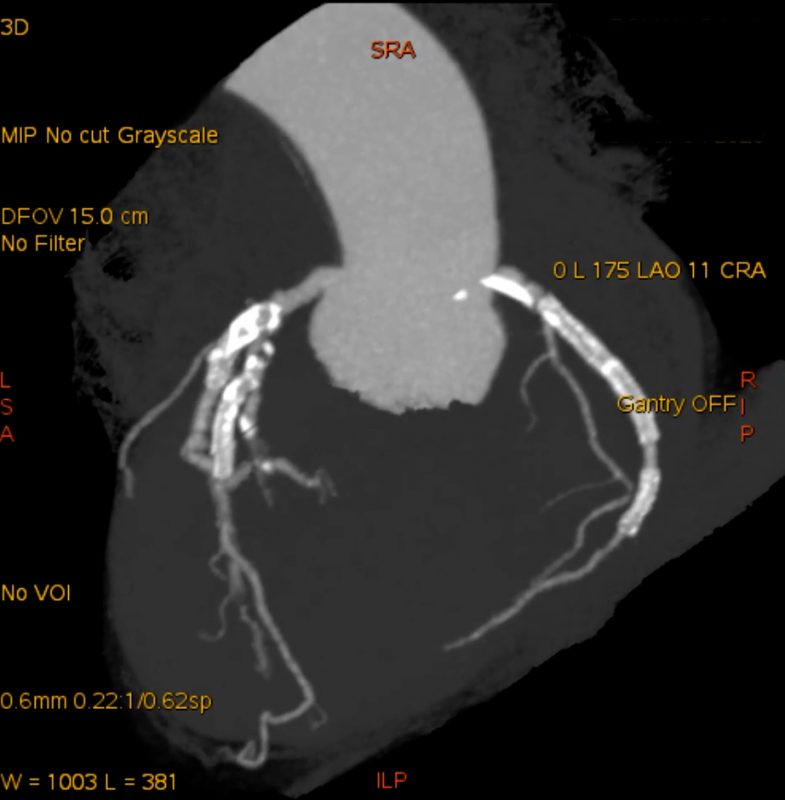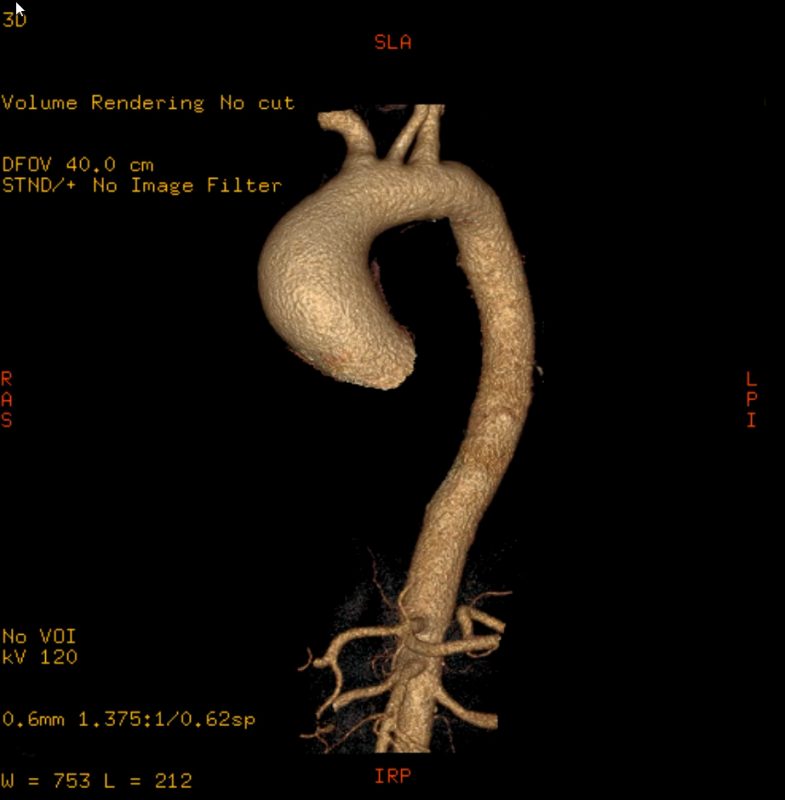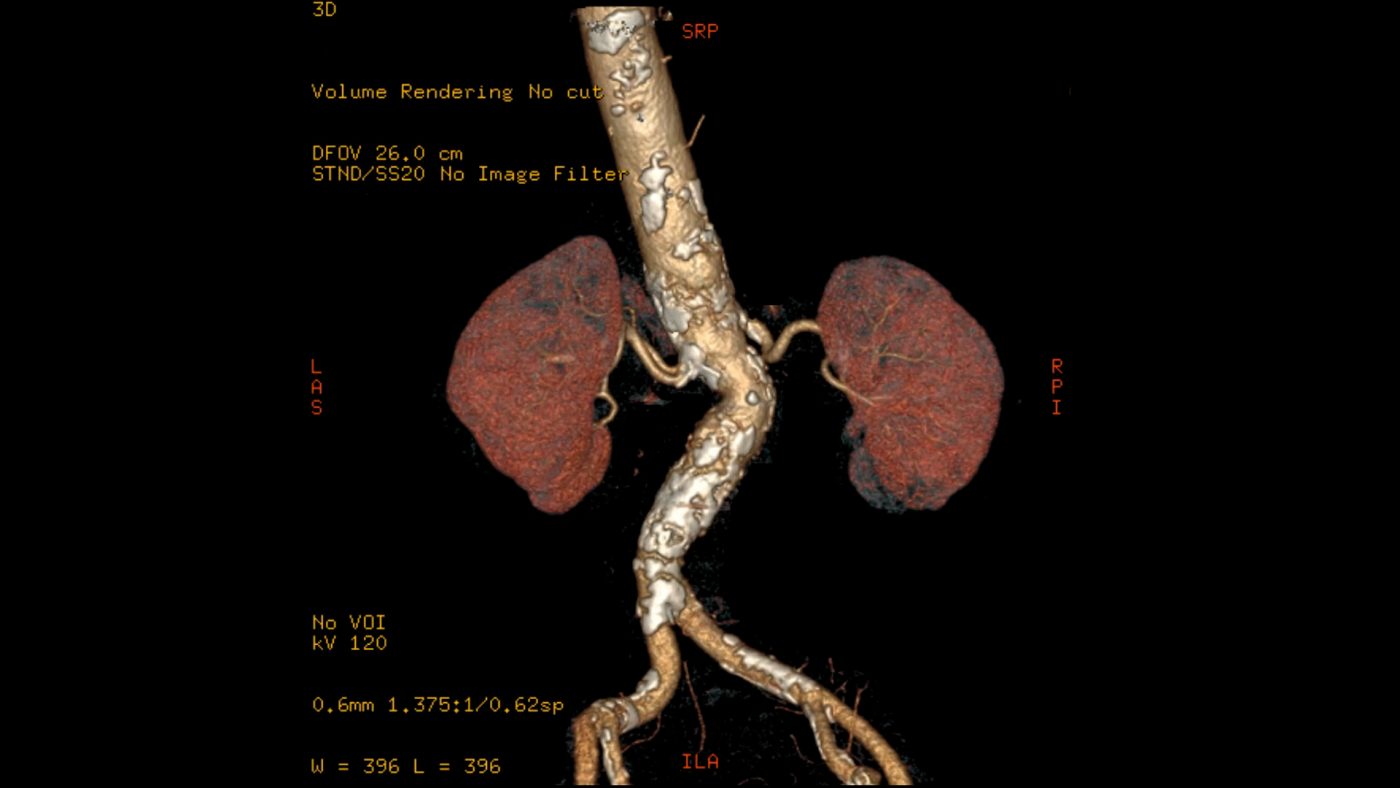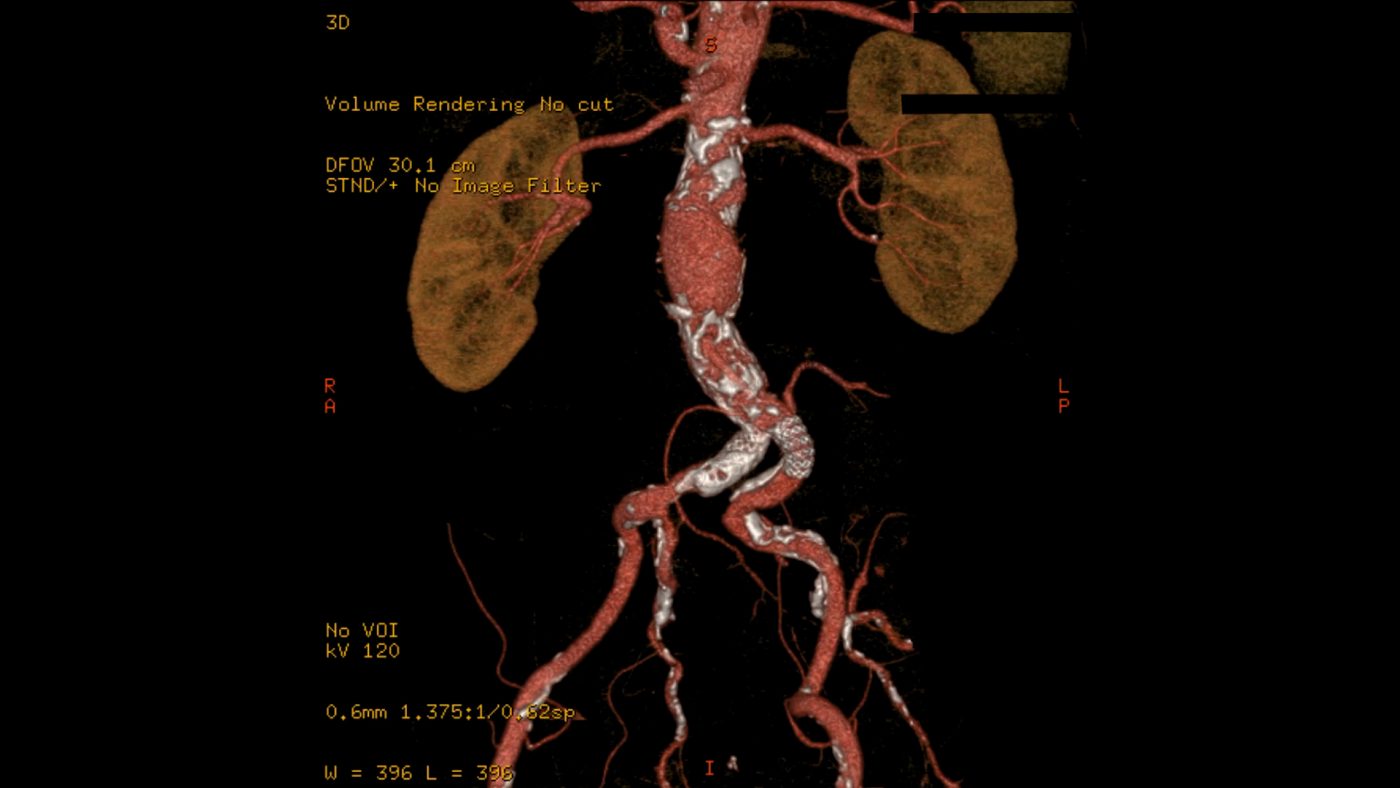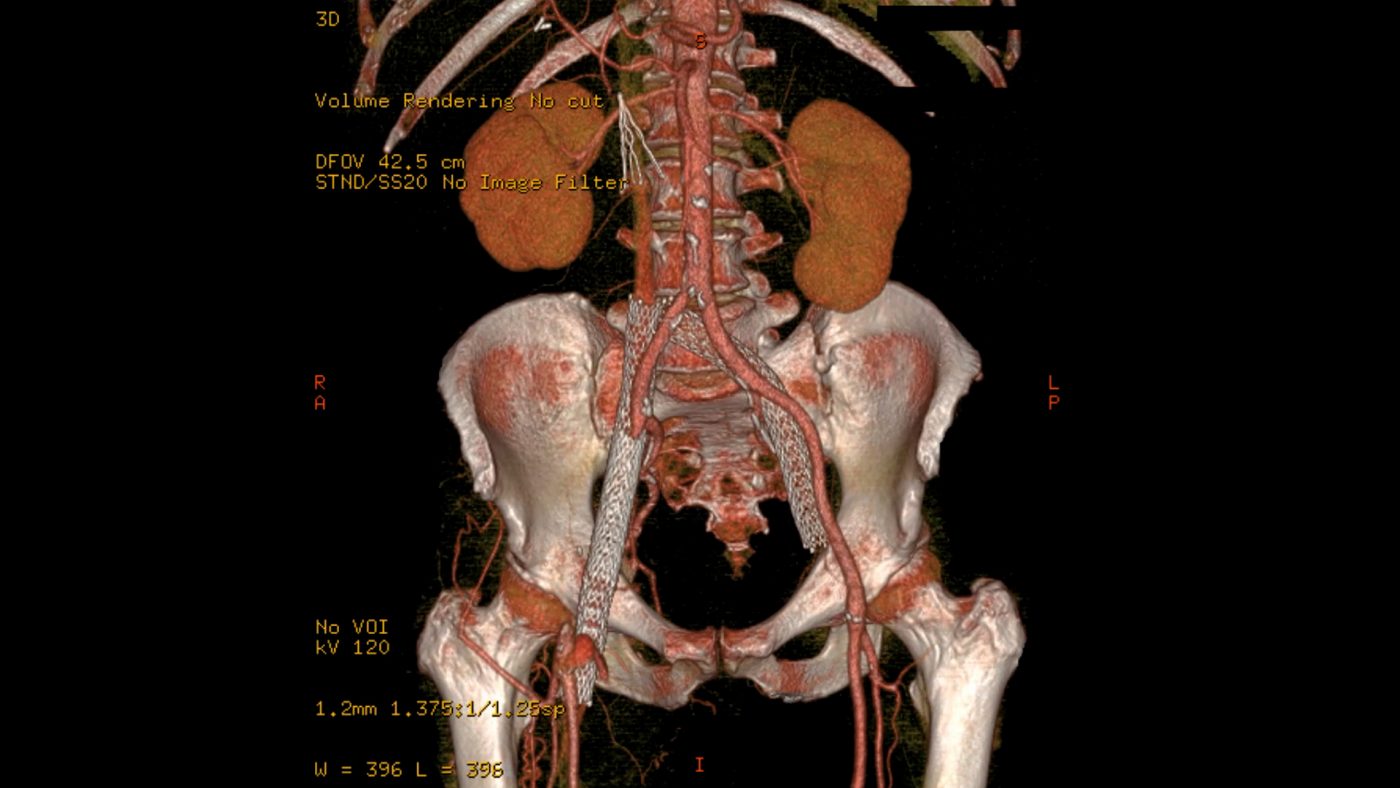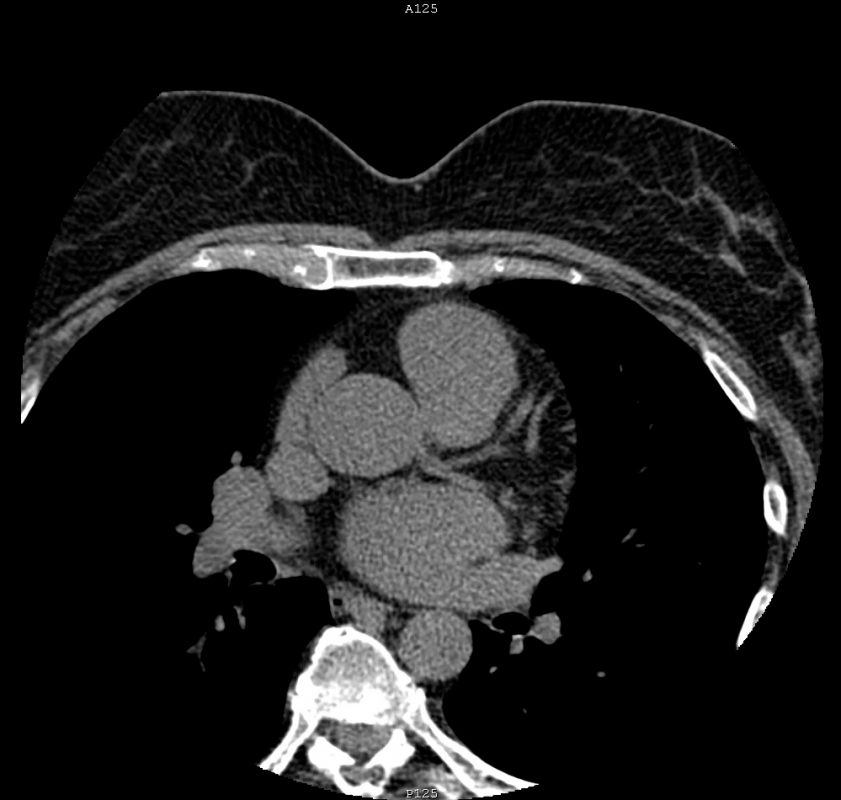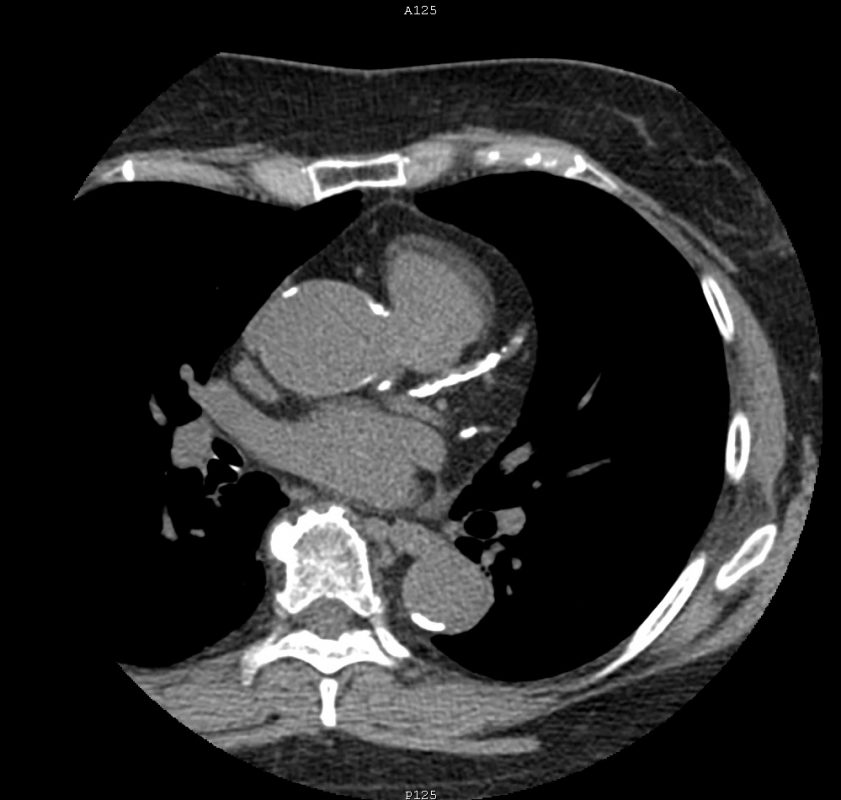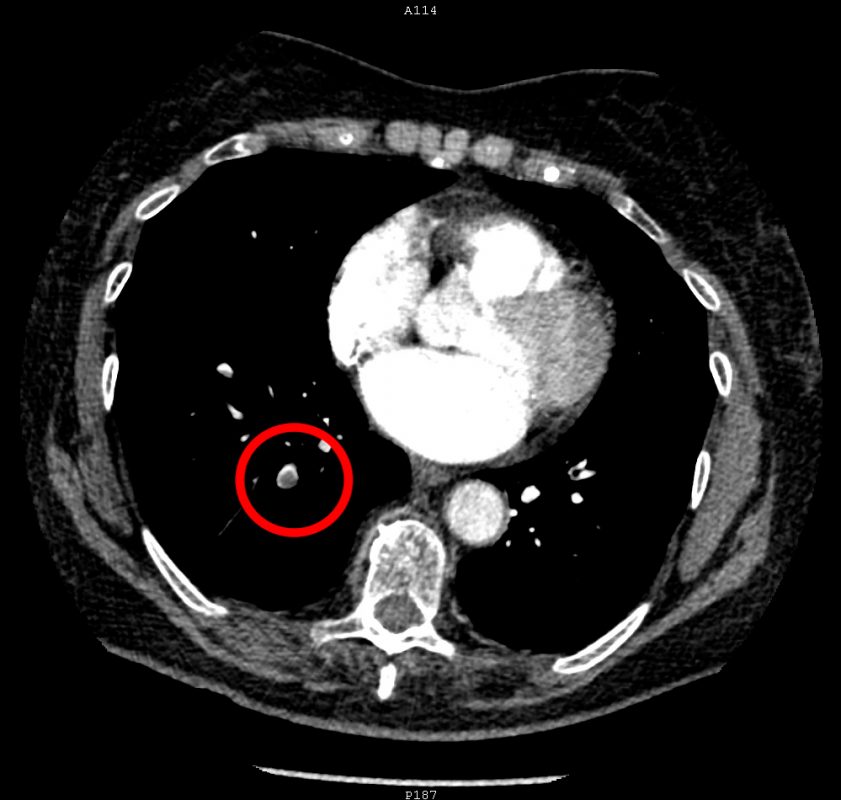A CT (Computed Tomography) Scan is a non-invasive scan using X-Ray technology to produce images of structures inside the body.Here at CVI, we may now perform CT Scans right here in our office of all bodily structures including the heart without the delay and the added cost associated with hospital or testing facility services.
CT Scanning
CT and CTA Scanning
The only IAC CT accredited cardiac specialist in the Orlando area.
Having a CT scanner on site greatly enhances our ability to see how your heart is working and the progression of calcium build up over time. As you can see our CT scanner is open allowing you to feel comfortable. Scans are completed fast, usually 30 minutes or less, with no restrictions afterwords.
What is a CT Scan?
What is a CTA Scan?
A coronary computed tomography angiogram (CTA) uses advanced CT technology, along with intravenous contrast (CT dye), to obtain high resolution, 3D pictures of the moving heart and its vessels as well as the structure of tissues and organs in the body. These images enable physicians to determine whether plaque or calcium deposits are present inside the arteries. CTA is a noninvasive method for detecting blockages in the coronary arteries and can be performed much faster than a cardiac Cath, with potentially less risk and discomfort as well as decreased recovery time.
Why is a Coronary Calcium Scan (Heart Scan) Important?
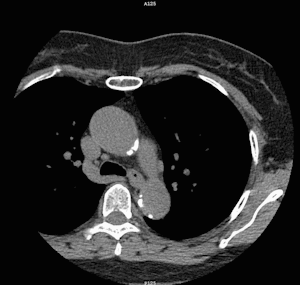
A coronary calcium scan is a specialized CT scan of your heart, which enables us to detect the buildup of plaque that contains calcium inside the arteries of the heart. This buildup of plaque can cause angina, a type of chest pain caused by reduced blood flow to the heart. However, this plaque can rupture and the blood that flows inside that artery attempts to seal the rupture in the plaque and forms a blood clot. This blood clot can suddenly worsen angina symptoms and chest pain, or occasionally, can seal the artery off completely. This results in no flow in the artery, and that is called a myocardial infarction or heart attack.
The calcium amount tells us how much plaque is present. Therefore, the higher the amount of calcium, the greater the amount of plaque in the arteries. A coronary calcium scan provides a number for the calcium amount. The greater the number, the greater the risk to the patient. This allows us to identify patients as very low risk, low risk, moderate risk, and high risk. Once identified, appropriate preventive measures can be implemented to prevent the progression of plaque buildup and calcium buildup, and avoid rupture of the plaque.
Who Should get a Coronary Calcium Scan?
It is predominantly indicated in patients in the intermediate risk group. However, that definition is still very vague. If the patient has risk factors for atherosclerosis such as pre-hypertension, hyperinsulinemia, hypertension, dyslipidemia, sleep apnea, history of smoking, increased body mass index, very sedentary lifestyle, inflammatory skin conditions, inflammatory bowel disease, peripheral vascular disease, history of stroke, and a history of previous myocardial infarction are typical examples of patients expected to have atherosclerosis, and the coronary calcium score that is elevated.
Typically it is done if patients with a risk factors of atherosclerosis, the buildup of plaque on your artery walls. Some of these include:
- increased body mass index
- very sedentary lifestyle
- history of stroke
- inflammatory skin conditions
- inflammatory bowel disease
- peripheral vascular disease
- history of previous myocardial infarction
- pre-hypertension
- hypertension
- hyperinsulinemia
- dyslipidemia
- sleep apnea
- history of smoking
The coronary calcium scan has been underutilized for more than a quarter century, mostly because of a lack of understanding of the usefulness of this test. It is the most direct way to establish a diagnosis of coronary artery disease, and risk stratifies the patient for future risks of heart attacks, death, and other forms of heart disease. Unfortunately, insurance companies and some medical organizations have not supported their use for dubious reasons.
Knowledge of the coronary calcium score can be a very strong motivating factor for lifestyle modifications, dietary changes, stress management, and pharmaceutical interventions. Most cardiovascular events come unannounced and do not give the patient an opportunity to have avoided the event with simple preventive measures. Our modern lifestyle habits can be clearly detrimental, and lead to coronary atherosclerosis, yet, we are led to believe that we are leading a clean, healthy lifestyle and diet. Hence, the first cardiac event comes as a shock.
Knowledge of the coronary calcium scan result can result in changes through education and avoiding the trap of social indoctrination about what really constitutes a healthy lifestyle and diet. When most patients are asked about their lifestyle and diet, most feel that it is quite good based on their past knowledge and what they have learned from the social structure. This is often slanted by the food industry, advertising, misinformed advisors, and upbringing. There is an ever-growing threat of cardiovascular disease, and the coronary calcium scan is an early signal of alarm and a call for action. Coronary artery disease and atherosclerosis is a predominantly preventable disease. It starts as silent coronary calcium buildup, and then years later, if no corrective action plan is implemented, results in severe morbidity and mortality. It is the #1 cause of death in the United States and much of the Western world.
Examples of CT Scans
Click the play button to open video.
CT Angiogram of the Carotid Arteries
CT Angiogram of the Heart with Extensive Disease
CT Angiogram Showing Ascending Thoracic Aortic Aneurysm
Renal CT Angiogram with Extensive Calcification and Stenosis
CT Angiogram of an Internal Aneurysm and Stents in both Iliac Arteries
Note the calcification of the arteries (white)

